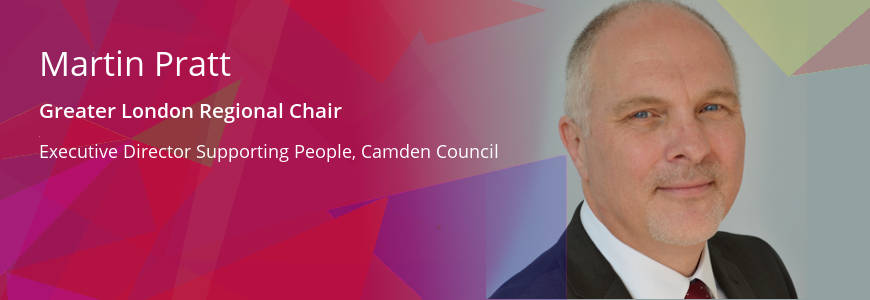What a difference a year makes

25 Sep 2020 Blog > What a difference a year makes
It’s exactly a year since I last wrote a blog for ADCS and my what a year it has been! Who could have foreseen the change the pandemic has wrought, in our working lives and at home and how the relationship between the two has been altered so much? Yet the challenges I wrote about a year ago; racial disparities in outcomes for children and families, the limits on the opportunities for our Black, Asian and Minority Ethnic colleagues, and the need to listen to and be inspired by the people with whom we work, are writ larger now than ever.
In London we have been working hard to learn from the experiences of the last six months of working through Covid, to make sure we shape new ways of working that do not allow us to slip back unthinkingly to our previous state. Directors of children’s services have met for ‘recovery workshops’ to reflect on our shared experiences of leading through the emergency. We have recognised that in our work together through the Covid period we have strengthened our relationships at a regional and sub-regional level and are better for it. Our networks for practice leaders in social care, youth justice, schools and SEND have all met to learn and plan for recovery together.
The centrepiece of our recovery curriculum, however, has been the work undertaken with Research in Practice to bring together practitioners, managers, principal social workers, workforce and quality leads to reflect on their work throughout the Covid period. The result is the report Learning from Lockdown, the headlines from which can be read here. What is clear from what colleagues across London have told us is that they are proud of how their services responded through the crisis. They have adapted to ensure the most vulnerable were protected and they learned new ways of supporting children and families that they do not want to now give up. The next stage of our work with Research in Practice will be to build upon what has worked for colleagues and for children and families and to recognise aspects of our emergency responses which need to be rolled back. This will see us develop our digital practice framework to support decision-making about how, where and when practice could and should be digital, when it needs to be face-to-face, and how a blend of approaches can best be used.
Two other messages stand out from our action learning sessions with Research in Practice. The first is just how the pandemic has laid bare the social inequalities that are so inherent in our society. Digital poverty and a lack of access to the means to communicate and to learn have been at the forefront of children’s services and the challenges schools face throughout the pandemic. The way our poorest communities and most vulnerable citizens have been disproportionately impacted by the virus has further underlined our social divide and this has been most acutely felt by Black, Asian and Minority Ethnic communities.
The second message from our staff is that now, as a result of the Covid experience and the Black Lives Matter movement, is the time to challenge these inequalities, particularly racial disparities, both as played out in the workplace and in wider society. It is clear that our staff are looking closely at our response to this challenge. As our Learning from Lockdown report states:
The commitment of senior leadership in responding actively has been strongly noticed and valued. Conversely, where this was felt to be absent this was keenly felt by staff. We heard very positive stories of young, black members of staff ‘walking taller’ in the wake of the whole organisation Zoom meetings that acknowledged structural racism directly.”
Across London we are working in our individual authorities and collectively through our Regional Improvement and Innovation Alliance to grasp the nettle of racial disparities, promote anti-racist practice and forge a new relationship with the people who use our services.
A year ago I wrote that “too often we accept things as they are rather than having the courage to fundamentally change them”. Having experienced a year like no other, now is surely the time to lean on each other and face the challenges of racism and inequality head on with our colleagues and our communities.

